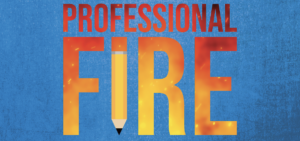The Challenge (and Importance) of Saying “No”
You’re on your way home from school thinking through the day and trying to figure out how it happened. You replay events….
It was 11:15 and students were in the midst of a chaotic transition—it was noisy, three students were jostling a bit too energetically in the back of the room, a whole stack of papers had just slid onto the floor, and you were feverishly trying to pick them up while four students asked you questions all at once. Suddenly, your principal popped her head in through the door. “Do you have a moment?” she asked. You didn’t, but you said, “Sure,” and headed into the hallway, with at least three-quarters of your mind still back in the room. “We need a staff member to act as co-chair for the upcoming Winter Fest,” your principal began. “You won’t have to do much—just attend a few evening meetings and serve as a liaison between the faculty and parents. Parent volunteers will do most of the work. I thought of you because I know how much the parents in the school trust and admire you. Would you be willing to help out?”
 Now, as you think back over this moment, you’re amazed at how easily the word yes spilled out. And you know it was the wrong answer. After all, you are already on the school literacy team, run two different afterschool activities, and somehow landed on the district-wide team that’s exploring a standards-based report card. Oh, and you have two young children at home who need you around in the evenings! It suddenly dawns on you—what had your principal said about “a few” evening meetings?! You quietly groan.
Now, as you think back over this moment, you’re amazed at how easily the word yes spilled out. And you know it was the wrong answer. After all, you are already on the school literacy team, run two different afterschool activities, and somehow landed on the district-wide team that’s exploring a standards-based report card. Oh, and you have two young children at home who need you around in the evenings! It suddenly dawns on you—what had your principal said about “a few” evening meetings?! You quietly groan.
In a recent Well-Balanced Teacher Facebook post, I asked people to share their thoughts about the importance of being able to say no as a teacher. Here is a sampling of people’s comments…
- I used to say yes to everything. I felt like I wanted to be a team player and also learn all these new things offered. But I lost my sense of balance and also felt like my voice was too loud/overheard/overpowering.
- I was just joking with a colleague this week that I need to take a class in how to say NO!
- When you are the new teacher, either your 1st job or at a new school, it’s hard to say no bc you want to make a good impression.
- It’s a right vs right decision. It’s “right” to say yes because we know that pleases whoever is asking. It’s also right because we think what we learn will impact our teaching. However, it’s also “right” to say no. “No” because we are already swamped with other obligations or “no” because we want others to shine.
- …too many meetings/committees that leave very little time for quality planning.
Why Is Saying No So Hard?
When I was writing The Well-Balanced Teacher, I asked many teachers what a healthy and well-balanced teacher looked like or what they did, and a surprising number people immediately said, “They know how to say No!” But what’s so hard about this? Why do so many teachers struggle to say this simple little two-letter word? There may be many reasons, but here are a few of the most common:
We want to please. Many teachers want to make others happy. We are caregivers and want to help others out. It makes us feel good to know that we are supporting our school—our administrators, our teammates, our parents, and our children.
We feel guilty. A close relative of wanting to please is not wanting to disappoint. We worry that others will be upset with us if we refuse and we don’t want good school projects to fall apart if we don’t help out.
We are scared. Especially as new teachers, we may be nervous about refusing. We don’t want to appear as though we’re not willing to work hard.
We are control freaks. We may be unwilling to give up roles and responsibilities (or let others take them on) for fear that whoever takes over won’t do things the way we want.
Unfortunately, there can be negative consequences for taking on more than we can handle. We may not have the time and energy needed to do a good job at whatever we’ve just taken on, so if we did so to please others, we may now worry about letting them down (feeling guilty in the process!). Our emotional and physical health may also suffer as we struggle to get enough sleep, squeeze in exercise, and eat well amidst an unhealthy schedule. And in the end, our students may suffer, when we don’t have the positive energy and cognitive strength to be the teachers they need us to be.
A Few Strategies
How can we strike a balance between being involved in our schools beyond our teaching day while still maintaining a healthy work/life balance? Again, there are many possibilities. Here are a few to consider:
Make your students a priority. When you’re wondering if you should take on an extra responsibility, keep your students in mind. Will this new role have a negative impact on your time to plan or your energy for great teaching? If so, you now have a responsibility to decline.
Ask for help. If you’re already overwhelmed, especially if the request has been made by an administrator, instead of an outright no you might ask for guidance: “I’d like to help, but I’m already swamped. Can you help me look at my schedule to see if there’s something we can take off of my plate?”
Be honest and direct. If we know we need to decline but beat around the bush (“I’d love to, but I’m not sure if I can…maybe I can fit it in…I have to check my schedule…”) we may leave people hanging or give the impression that we might accept. Instead, be clear and truthful: “I’m already completely booked, and I can’t take on anything else right now.”
Say yes to the right things. Make sure to sign up for roles and responsibilities that will fire you up—the ones for which you have passion and energy. Maybe co-chairing the Winter Fest isn’t your cup of tea, but you could be energized by joining the school culture and climate team. (By the way, if no one in a building has energy for a committee, then perhaps that’s one for the school to drop!)
Let others help carry the load. Schools aren’t healthy when just a few people facilitate all of the activities and committees. Help elevate colleagues’ voices and allow them to take on leadership roles, even if you’re sure they won’t do things the same way you would.
Be realistic. Perhaps most importantly, we should be realistic with ourselves about what we can and can’t do. There are times when we have extra time to give, and that’s a great time to support our schools and districts through taking on extra leadership roles. When we have very young children or are caring for a sick relative, we should let others take on that work.
To be clear, I believe that taking on extra roles and responsibilities is an important part of being a professional educator. Over the course of my fifteen years in the classroom, I ended up serving on many committees and teams: the social studies curriculum revision team, a building-wide literacy team, the Aspirations team, and many hiring committees. I also took on several leadership roles, serving as co-president of the PTO, heading up a Responsive Classroom team, and leading a group of students who planned and facilitated whole-school assemblies. Part of being a well-balanced teacher is engaging in the broader school community in positive and productive ways. We just need to make sure that as we do so, we still have the time and energy needed to take care of ourselves, our families, and our students!





